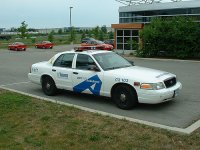- Reaction score
- 1,352
- Points
- 1,260
I believe this news from the U.S. is likely relevant to North American traffic fatality statistics.
"WASHINGTON - U.S. Transportation Secretary Ray LaHood today announced that the number and rate of traffic fatalities in 2010 fell to the lowest levels since 1949, despite a significant increase in the number of miles Americans drove during the year.":
http://www.nhtsa.gov/PR/NHTSA-05-11
"The decrease in fatalities for 2010 occurred despite an estimated increase of nearly 21 billion miles in national vehicle miles traveled."
I would also add laminated and tempered glass, crumple zones, side impact protection beams, collapsible steering columns and padded dashboards. As well as improved fuel system integrity and fire retardant materials.
"WASHINGTON - U.S. Transportation Secretary Ray LaHood today announced that the number and rate of traffic fatalities in 2010 fell to the lowest levels since 1949, despite a significant increase in the number of miles Americans drove during the year.":
http://www.nhtsa.gov/PR/NHTSA-05-11
"The decrease in fatalities for 2010 occurred despite an estimated increase of nearly 21 billion miles in national vehicle miles traveled."
I would also add laminated and tempered glass, crumple zones, side impact protection beams, collapsible steering columns and padded dashboards. As well as improved fuel system integrity and fire retardant materials.



/cloudfront-us-east-2.images.arcpublishing.com/reuters/B6T7RPQLZRPV7AJBKGXJNA3BU4.jpg)
